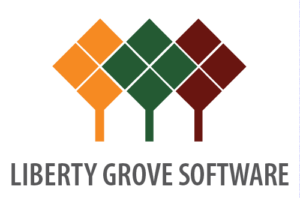Connecting Dynamics 365 Business Central to the World and Back. What is Microsoft Dataverse?

Our first blog in this three-part series laid out our plan to explore three tools that connect your Microsoft Dynamics Business Central (BC) Enterprise Resource Planning (ERP) system to the world and back:
Electronic Data Interchange (EDI)
Microsoft Dataverse
Microsoft Power Apps
In Part 1, we took a deep dive into the features, functionality, value, and rewards of a powerful EDI solution and how it will enhance the connectivity and efficacy of your Dynamics BC ERP software. If you missed Part 1, don't worry. You can still catch up and here. Then you will be ready to continue as we dive into the next tool in the series.
Connecting Microsoft BC to the World and Back…
Part 2 – Microsoft Dataverse
Let's start with the basics because Microsoft Dataverse is relatively new. It is entirely possible that either you have never heard of Microsoft Dataverse, or you have heard about it, but you don't have a clear idea of what it is and why you might want to use it.
What Is Microsoft Dataverse?
Microsoft Dataverse lets you securely store and manage data that is used by various business applications. Microsoft Dataverse data is stored within a set of tables. Each column in the table is designed to store a particular data type, such as name, age, salary, etc. Microsoft Dataverse comes with a base set of standard tables covering the most typical scenarios. However, you can also create custom tables specific to your business and populate them with data by using Power Query. App developers can then build rich applications from this data by using .
Why Use Microsoft Dataverse?
Microsoft Dataverse is a secure, cloud-based storage option for your data. There are many reasons to consider Microsoft Dataverse and many benefits, too. Here are three:
- Easy to manage – Both the data and the metadata are stored in the cloud. You don't have to worry about setting it up because that's already done for you.
- Easy to secure – Users can see data only if you grant them access. Role-based security means that you control access for different users within your company.
- Easy Access to your Dynamics 365 Data – Data from your Microsoft Dynamics 365 applications is also stored within Microsoft Dataverse.
Microsoft Dynamics 365 and Microsoft Dataverse
Various applications use Dataverse to store and secure data. This enables you to build apps using Power Apps and Dataverse directly against your core business data. Since this data is already used within Microsoft Dynamics 365 ERPs, there is no need for any further integration. To elaborate a bit more, consider these Microsoft Dataverse benefits:
- Build apps against your Microsoft Dynamics 365 ERP data – Build apps quickly against your business data within Power Apps or by using the extensible platform that allows developers to:
- Programmatically interact with data and metadata
- Apply business logic
- Create custom connectors
- Integrate with external data
- Manage reusable business logic and rules – Business rules and logic already defined in your Dataverse tables are applied to apps created with Power Apps to ensure data consistency, regardless of how users access the data or which app they use.
- Reusable skills across Microsoft Dynamics 365 ERPs and Power Apps – Users who are skilled in Power Apps or Dynamics 365 can now take advantage of those skills across the Dataverse platform. Creating tables, forms, and charts are now common tasks that can be performed across applications.
Security in Microsoft Dataverse
Whenever you introduce new tools into your system, security is always a concern. That's why it's good to know that the Microsoft Dataverse rich security model protects users' data integrity and privacy while promoting efficient data access and collaboration. You can combine business-unit security, role-based security, row-based security, and column-based security to define the overall access to information that any user will be granted in a Microsoft Dataverse environment.
As you can see…
There's a lot to learn about Microsoft Dataverse, and we're guessing that you probably have at least a few questions. That's why we're inviting you to…
Take the next step…
Contact by calling 630-858-7388 or emailing nav@libertygrove.com.
And stay tuned…
Because in Part 3 of this series, we will take a deep dive into the Microsoft Power Platform, emphasizing the popular Microsoft Power Apps. Keep watching the Liberty Grove blog for more great content.
Related Post
Connecting Microsoft Dynamics 365 Business Central to the World and Back (Part 1 – EDI)

